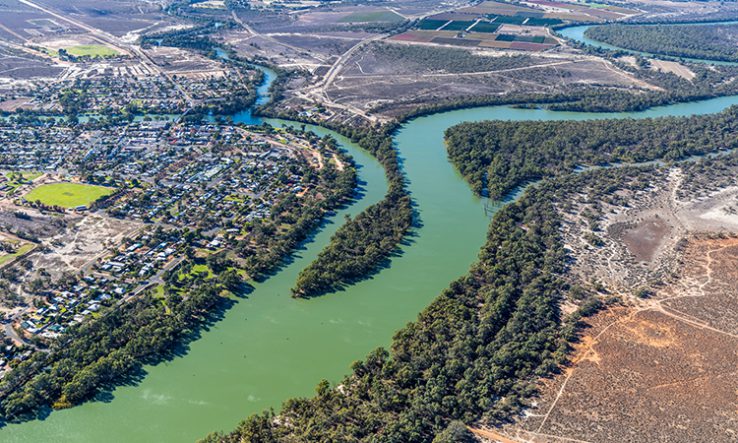
Water issues, agriculture and climate change are the focus of the latest Australian multi-state institute
Research into the Murray-Darling Basin is to be boosted by a new Cooperative Research Centre.
The One Basin CRC was announced on 19 May. It will receive A$50 million in government funding over 10 years and expects to bring in A$106m in cash and in-kind contributions from its partners.
Its focus will be water supply and agricultural issues. The basin, which covers the catchment area for the Murray-Darling river system, has been plagued by water problems in recent years, including three massive “fish kill” events in 2018 and 2019.
There are 85 members of the CRC, including lead partners the University of Melbourne, the Australian National University and Charles Sturt University. Its interim chief executive is Michael Stewardson, a professor of hydrology at Melbourne.
Other members include the Commonwealth Scientific and Industrial Research Organisation, local governments across the basin, the Victorian and national farmers’ federations, the agricultural infrastructure company Elders and the Northern Basin Aboriginal Nations group.
The CRC will investigate the basin’s water flow and work with farms to develop strategies to manage water and climate change issues. It will have regional hubs in New South Wales, Queensland, Victoria and South Australia.
It will develop a public information portal with tools to help users make decisions about land and water use. It will also develop forecasting models for climate change impacts and create a database of water resources in the basin. The full research programme is still being developed.
‘Wicked policy problem’
The CRC was the last in the current round of announcements. Jane O’Dwyer, chief executive of CRC umbrella body Cooperative Research Australia, said One Basin would address issues around one of Australia’s most valuable natural assets.
“First Nations peoples with their long connection and deep knowledge of the basin will also be core to the CRC,” she said.
“It has been one of the most contested natural assets we have and a wicked policy problem. The One Basin CRC, with strong community buy-in, regional hubs and a place-based research strategy, will tackle these challenges and help realise the full potential of the basin for the benefit of all Australians.”